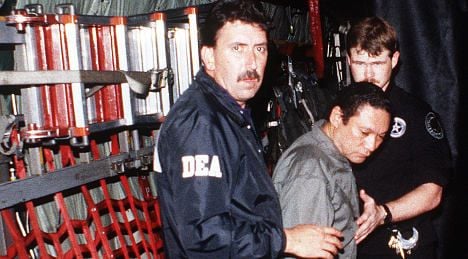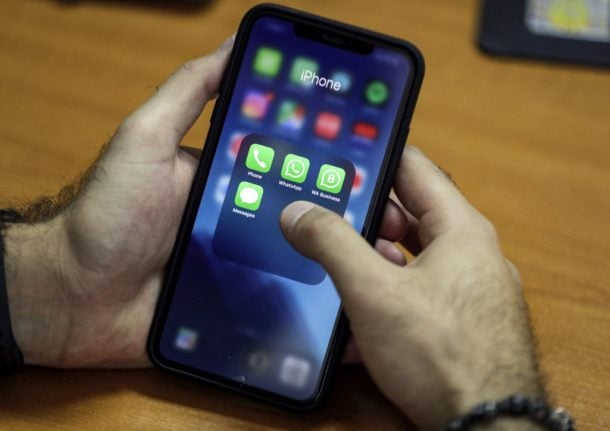Noriega, who was overthrown by a US invasion in 1989, is serving a sentence in France after being convicted of money-laundering there.
Having served five of his seven years he is eligible for parole and has asked to be released, but Prime Minister Francois Fillon has ordered that he be extradited to Panama once his sentence is over.
If and when the pock-marked 77-year-old former general, nicknamed “Pineapple Face”, does arrive back in Panama, he is expected to have to begin serving the lengthy sentences he received in absentia there.
He has three convictions for gruesome human rights violations, including the death of a military commander, dating to his military rule from 1983 to 1989. Each conviction carries a 20-year prison sentence.
However, the process of getting Noriega to Panama has been complicated by the Panamanian government’s sending French authorities a second extradition request, which must now also be ruled on.
Noriega’s lawyer in Panama, Julio Berrios, has said that his country committed a “grave error” by sending a new extradition request.
“This is a mistake by the foreign ministry, because it is delaying and hindering the extradition process,” Berrios said.
Panamanian Foreign Minister Roberto Henriquez said the government had acted “correctly.”
“Everything that happens in France falls under the jurisdiction of the French courts, and Panama cannot intervene,” he told reporters.
The one-time strongman was a key asset for the US Central Intelligence Agency but fell out with Washington when he allegedly turned his strategically important country into a drugs hub.
He was sentenced by a Paris court in July last year to seven years in jail for laundering the equivalent of €2.3 million (then $2.8 million) from Colombia’s Medellin drug cartel through French banks.
The drug money transited through the now-defunct Bank of Credit and Commerce International in the late 1980s and was used by Noriega’s wife and a shell company to buy three luxury apartments in Paris.
Noriega had served 20 years in a US jail in Miami for drug trafficking and money laundering before being extradited to France.
Panama has said the United States has given its approval for Noriega to be extradited from France. US consent is required under existing treaties since he had not yet served his full jail term in the United States.
Noriega rose to power in Panama as a military intelligence chief close to General Omar Torrijos, a left-leaning military strongman and father of the future president.
After Torrijos’ death in a mysterious 1981 plane crash, Noriega consolidated power, ultimately becoming the head of the military and the country’s most feared man.



 Please whitelist us to continue reading.
Please whitelist us to continue reading.
Member comments